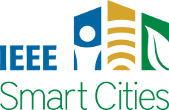Empowering Education with XR Technology in Smart Cities
Written by Eleni Mangina and Fridolin Wild
The world is changing and the Educational Metaverse is coming. The future of learning is in the overlay reality. The real world surrounding us is augmented using wearables, liberating us from decades of being tied to screens and allowing us to ‘live’ in our learning experiences. Smart cities of the future need to facilitate this shift to eXtended Reality (XR) with accessible sensors, open data, and digital twins so we can realize the evident potential for rapid reskilling and developing expertise in real-time directly where the knowledge is applied.
The biggest risk to education is boredom because boredom leads to disengagement. Every teacher has a story to tell about how challenging it can be—at times—to get learners aware, interested, passionate, and active. To provide time and a safe environment for reflection, connecting with experience, and building knowledge. To provide meaningful and purposive feedback.
Without adequate digital education for the cyber-physical era, smart cities could not be smart. However, the vision of interactive learning in the connected twin world of the educational metaverse still falls short on many fronts.
We ascertain here, in particular, the lack of an elaborate and comprehensive set of affordances conducive to pedagogy, knowledge building, and cognition, but also void of inclusion- and equity-oriented policy and strategy that are capable of empowering all citizens without restrictions to take part in building, maintaining, and using the smart city of the future. Current advances in 5G and towards 6G create a world of almost limitless high-speed connectivity with global reach, ready to empower learners in smart cities ubiquitously with contextualized immersive and augmented learning experiences.
Imagine a world where anyone can, at any time, access the highest quality education and training, regardless of social background, disability, or gender gaps. eXtended Reality offers new ways to deal with old problems by leveraging the benefits of a connected metaverse that thrives with equality, diversity, and inclusion. To be able to benefit from this empowerment, however, citizens need digital literacy and adequate tool support.
The pandemic has brought great inequalities regarding ICT literacy in society, sometimes called widespread "digital poverty." But citizens of future smart cities need to be equipped with the skills to engage with the brave new digital world. Consequently, all levels need investments for educators and trainers to transform the digital learning experience and release the potential of XR to students and trainees.
Technological innovation cannot be restricted to niche products that are useful only to the few. Still, it must be introduced for everyone to cross the ICT skills chasm between the privileged users and those at risk of exclusion. XR in education and training is needed to ensure systematic societal engagement with innovative technology, empowering citizens to engage actively with the smart city of the future. An added focus on XR Open Educational Resources and open edXR solutions can deliver this.
XR technology offers intuitive interaction for numerous applications enabled by improved access to real-time data in the smart city. With ethically-approved access to data, citizens can trust to be informed and educated anytime, anywhere, overlaying reliable information directly where needed, retrieving expert knowledge and advice instantly and on the spot. The educational XR metaverse for smart cities merges the physical and digital world, empowering all citizens to learn in an interconnected XR world.
XR digital learning for everyone is accessible, and the public's interest in advancing year on year. Traditional infrastructures are being updated to augment learning experiences (ARETE H2020: MirageXR app), rendering Smart Education in Smart Cities a real possibility. The educational sector at this stage needs to come together and map out the way forward for our society. Decisions are needed in terms of the digital literacy of citizens at all levels of education; learners need to have access to advanced XR technologies and platforms for collaborative teaching and to learn with low latency XR experiences. For XR technology to be effective, smart cities must have a reliable, secure, and trustworthy network, as privacy and data protection are paramount in education.
The cost-effectiveness of XR technology in education needs to be associated with the benefits of Smart Cities and go beyond safety issues. XR training has proven an 8.8% improvement in recall accuracy compared to traditional teaching and learning methods.1 Additionally, training costs and constraints on time and space are minimized. It has been shown that employees improve their performance by up to 70% and become competent faster (by 40%), and the training time is reduced.2 XR also provides the opportunity for simulations that would typically put the users at risk.
In Smart Cities, operational downtime is expensive, and XR can provide training with more immediacy and live in operation. Where not already foreseen, Smart Cities will need to retrofit learning processes with XR equipment, technology, and associated methodology for the societal and economic benefits in the long run.
References
- https://nsla.nv.gov/XR-research
- https://www.forbes.com/sites/solrogers/2019/05/09/how-vr-ar-and-mr-are-making-a-positive-impact-on-enterprise/?sh=4d08bfbb5253
This article was edited by Kithinji Muriungi
To view all articles in this issue, please go to April 2022 eNewsletter. For a downloadable copy, please visit the IEEE Smart Cities Resource Center.


To have the eNewsletter delivered monthly to your inbox, join the IEEE Smart Cities Community.
Past Issues
To view archived articles, and issues, which deliver rich insight into the forces shaping the future of the smart cities. Older eNewsletter can be found here. To download full issues, visit the publications section of the IEEE Smart Cities Resource Center.



